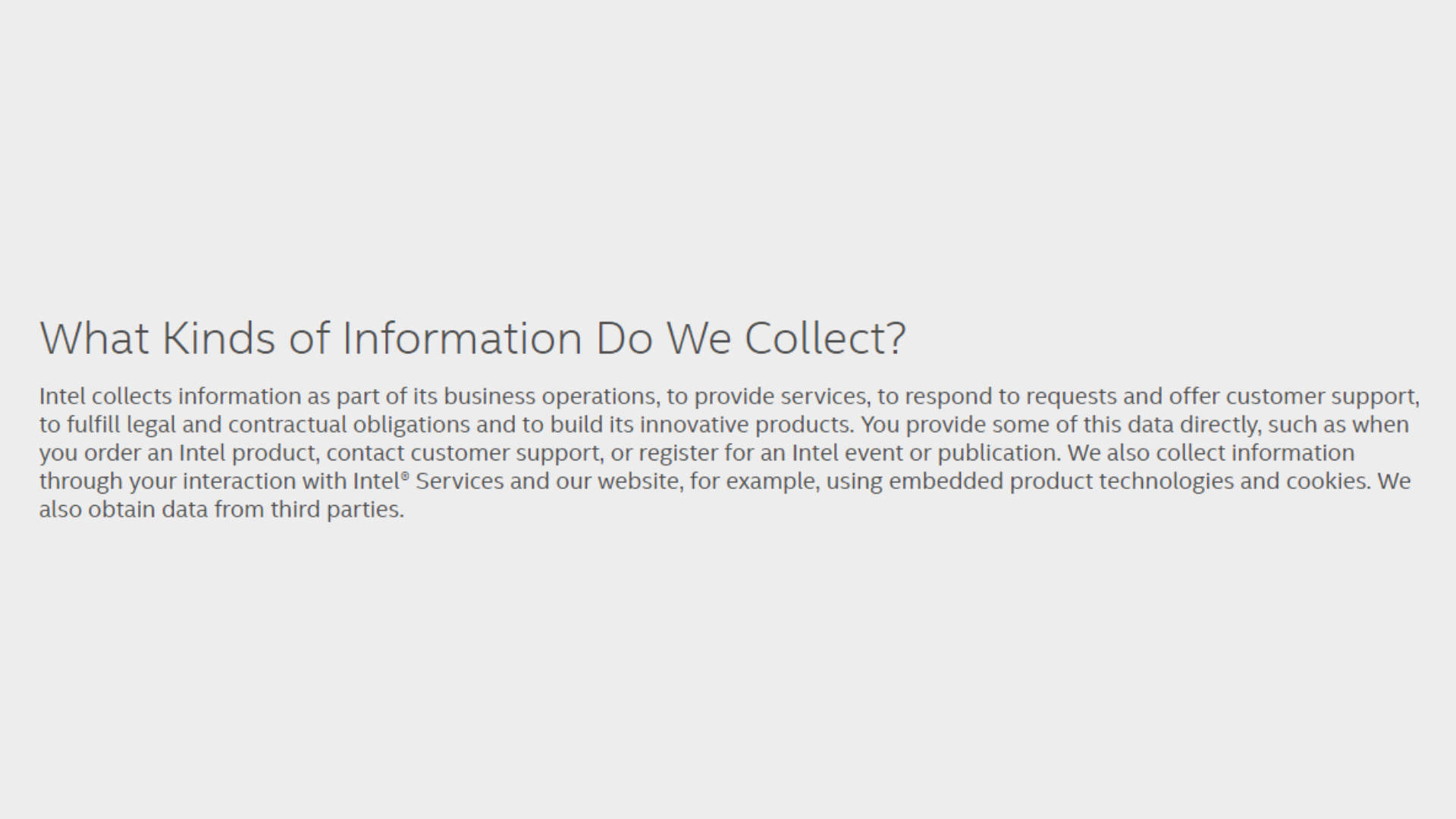Intel accused of wiretapping in class action lawsuit
Potential session monitoring scripts in use on the Intel site could spell privacy issues for innocent browsers.

Back in February, Intel was accused of violating wiretapping laws with the use of keystroke and mouse movement tracking on its site. Now, the lawsuit has been moved up from Florida state court, to the federal district court of Orlando, with growing weight surrounding claims that the multi-billion dollar company employs tracking software to monitor individuals use of the website.

Best wireless gaming mouse: ideal cable-free rodents
Best wireless gaming keyboard: no wires, no worries
Best wireless gaming headset: top untethered audio
An article by The Register points to a court document PDF which outlines the lawsuit in more detail. It notes that Holly Londers, who brought the information to court, claims that at least a dozen of her visits to the Intel site revealed potential "tracking, recording, and/or 'session replay' software" which was used to "intercept use and interaction with the website."
Although there's no specific software stated in the court documentation, an attorney involved in the case hinted to The Register that the third party company involved is believed to be Clicktale.
According to information gleaned from Blacklight, a site that exposes tracking software on sites, the Intel site uses "a session recorder, which tracks user mouse movement, clicks, taps, scrolls, or even network activity." However, the site didn't detect any keystroke logging and it is unclear how the session data is being used.
Intel's privacy statement on the site explains the following:

And, in regards to these third parties, it notes "We might also obtain information through a partner, or co-create datasets with a partner, as part of our business operations." It's clear some kinds of information are being gathered, then, but there's nothing specific to say what type of information is being recorded and stored, which is presumably the reason this case has gained so much momentum.
Gunes Acar, a postdoctoral researcher at Princeton CITP, talked a bit about analytics scripts back at a FTC PrivCon event in 2018. He explains "it's the website's responsibility—or maybe third party can have a an API or something—to inform the users that their mouse movements, or keypresses are being monitored." He goes on to note that "companies could be nudged to be more transparent, more upfront about what they collect, and the risks about this collection."
Keep up to date with the most important stories and the best deals, as picked by the PC Gamer team.

Having been obsessed with game mechanics, computers and graphics for three decades, Katie took Game Art and Design up to Masters level at uni and has been writing about digital games, tabletop games and gaming technology for over five years since. She can be found facilitating board game design workshops and optimising everything in her path.

